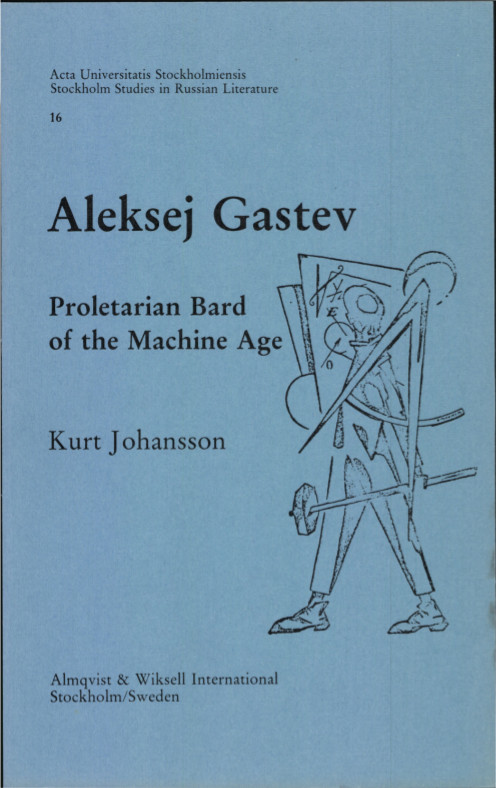Thomas Harrison: 1910: The Emancipation of Dissonance (1996)
Filed under book | Tags: · 1910s, aesthetics, art, art history, avant-garde, expressionism, literature, music, music history, painting, philosophy, sociology

The year 1910 marks an astonishing, and largely unrecognized, juncture in Western history. In this perceptive interdisciplinary analysis, Thomas Harrison addresses the extraordinary intellectual achievement of the time. Focusing on the cultural climate of Middle Europe and paying particular attention to the life and work of Carlo Michelstaedter, he deftly portrays the reciprocal implications of different discourses—philosophy, literature, sociology, music, and painting. His beautifully balanced and deeply informed study provides a new, wider, and more ambitious definition of expressionism and shows the significance of this movement in shaping the artistic and intellectual mood of the age.
1910 probes the recurrent themes and obsessions in the work of intellectuals as diverse as Egon Schiele, Georg Trakl, Vasily Kandinsky, Georg Lukàcs, Georg Simmel, Dino Campana, and Arnold Schoenberg. Together with Michelstaedter, who committed suicide in 1910 at the age of 23, these thinkers shared the essential concerns of expressionism: a sense of irresolvable conflict in human existence, the philosophical status of death, and a quest for the nature of human subjectivity. Expressionism, Harrison argues provocatively, was a last, desperate attempt by the intelligentsia to defend some of the most venerable assumptions of European culture. This ideological desperation, he claims, was more than a spiritual prelude to World War I: it was an unheeded, prophetic critique.
Publisher University of California Press, 1996
ISBN 0520200438, 9780520200432
264 pages
Reviews (Martino Marazzi; Tyrus Miller; Daniela Bini; Christopher Hailey; Richard Mattin; Dennis Sexsmith)
Review (Laura A. McLary, Monatshefte)
Review (Thomas Kovach, Austrian History Yearbook)
Review (Marco Codebo, Carte Italiane)
Wikipedia
PDF (some images are missing)
View online (HTML, with images)
Kurt Johansson: Aleksej Gastev: Proletarian Bard of the Machine Age (1983)
Filed under book | Tags: · 1910s, biography, machine, management, poetry, proletariat, russia, taylorism

This book attempts to give an outline of Aleksej Gastev’s life and works primarily up until 1920.
Aleksej Gastev (1882-1941?) belonged to the Russian proletarian intelligentsia. He was an active revolutionary, a journalist with syndicalist leanings, a metal-worker and trade-union leader, and one of the best proletarian poets. In later years he became perhaps the most important champion of the Taylor system and scientific management in Russia; as the founder and leader of the Institute of Labour (CIT) in Moscow he trained hundreds of thousands of new workers for Soviet industry. In 1938 he fell a victim to the Stalinist terror.
Besides presenting his biography, the present study tries to trace the development of Gastev’s Utopian ideas about the creation of a New Man suited to the industrial society of the future. In his articles and poems the worker is so Intimately fused with machines that he adopts their rhythm and functional movements, himself becoming “mechanical”. One chapter is specially devoted to Gastev’s poetry, the collection Poézija rabočego udara (“The Poetry of the Factory Floor”). Four prose poems are analyzed in detail. These describe the future development of the proletariat, and also show how Gastev ‘s manner of writing gradually becomes a kind of “Taylorized” poetry, that has been strongly influenced by futurism.
Publisher Almqvist & Wiksell International, Stockholm, 1983
Stockholm Studies in Russian Literature series
ISBN 9122006141
170 pages
PDF (updated on 2013-12-8)
Comment (0)David F. Kuhns: German Expressionist Theatre: The Actor and the Stage (1997)
Filed under book | Tags: · 1910s, 1920s, avant-garde, cabaret, expressionism, germany, performance, theatre

“German Expressionist Theatre considers the powerfully stylized, antirealistic styles of symbolic acting on the German Expressionist stage from 1916 to 1921. It relates this striking departure from the dominant European acting tradition of realism to the specific cultural crises that enveloped the German nation during the course of its involvement in World War I. The examination of portions of previously untranslated Expressionist scripts and actor memoirs allows for an unprecedented focus on description and analysis of the acting itself.
– Examines German Expressionist theatre from a performance point of view
– Contains previously untranslated portions of Expressionist scripts and actor memoirs
– Looks in detail at key works and productions”
Publisher Cambridge University Press, 1997
ISBN 0521583403, 9780521583404
311 pages
via Charles Turner
review (Anne M. Turner, Journal of Dramatic Theory and Criticism)
Comment (0)
